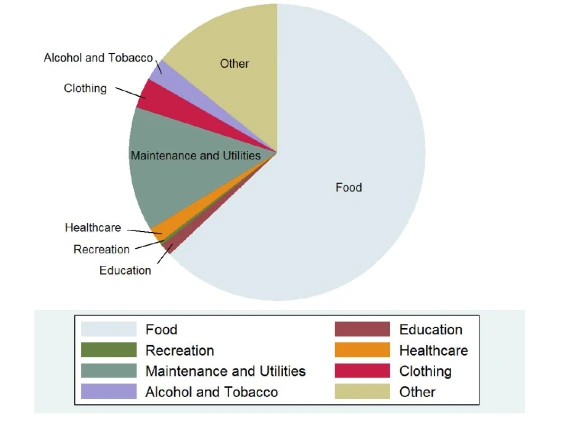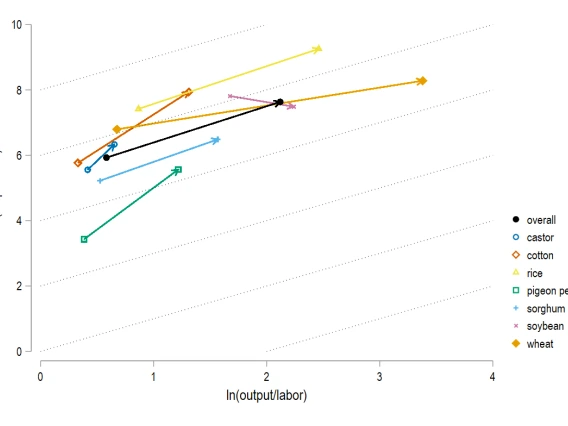
Impact Evaluations in Data Poor Settings: The Case of Stress-Tolerant Rice Varieties in Bangladesh
Jeffrey D. Michler, Dewan Al Rafi, Jonathan Giezendanner, Anna Josephson, Valerien O. Pede, and Elizabeth Tellman

The Mismeasure of Weather: Using Earth Observation Data for Estimation of Socioeconomic Outcomes
Anna Josephson, Jeffrey D. Michler, Talip Kilic, and Siobhan Murray
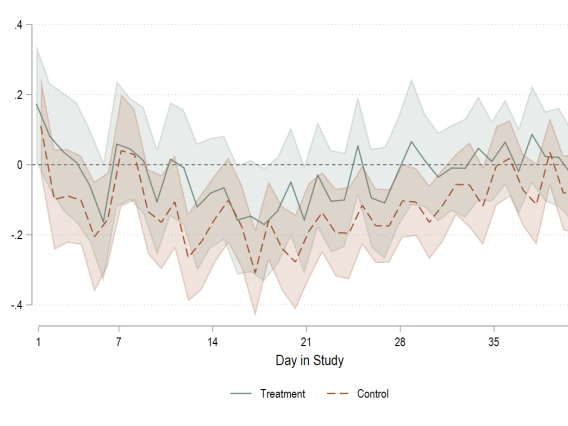
Food Without Fire: Environmental and Nutritional Impacts from a Solar Stove Field Experiment
Laura McCann, Jeffrey D. Michler, Maybin Mwangala, Osas Olurotimi, and Natalia Estrada Carmona
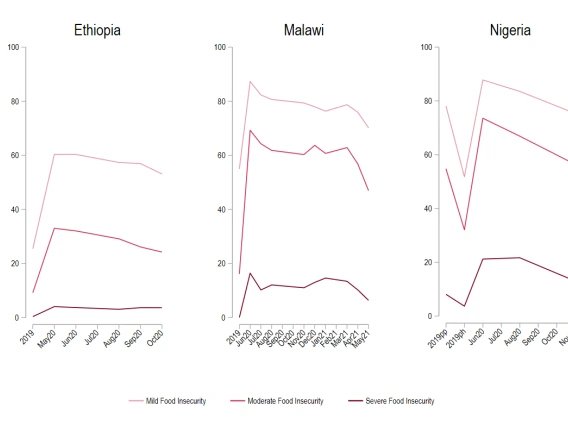
Coping or Hoping? Livelihood Diversification and Food Insecurity in the COVID-19 Pandemic
Ann Furbush, Anna Josephson, Talip Kilic, and Jeffrey D. Michler
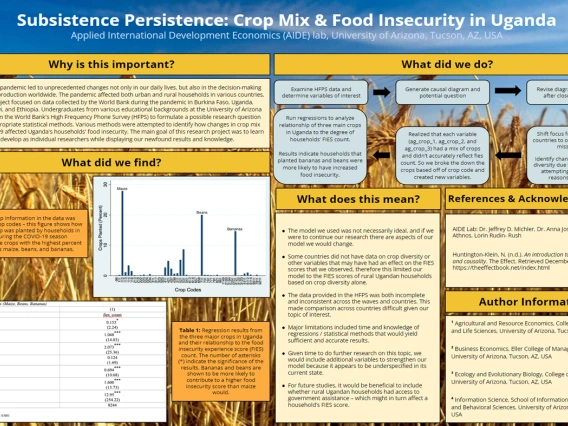
Expanding Undergraduate Research Experience: Opportunities, Challenges, and Lessons for the Future
April Athnos, Anna Josephson, Jeffrey D. Michler, and Lorin Rudin-Rush
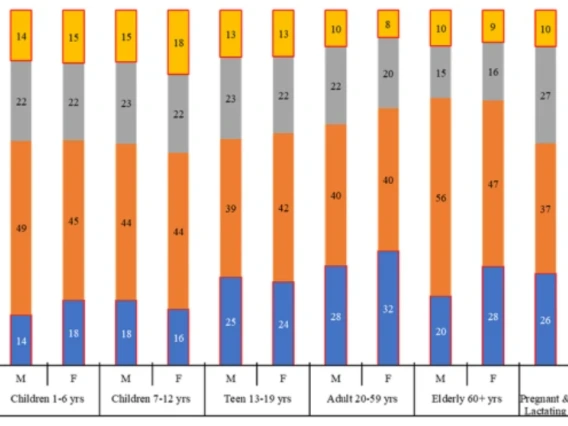
Intra-Household Inequality in Food Expenditures and Diet Quality in the Philippines
Zetianyu Wang, Anna Josephson, and Felipe Dizon

Privacy Protection, Measurement Error, and the Integration of Remote Sensing and Socioeconomic Survey Data
Jeffrey D. Michler, Anna Josephson, Talip Kilic, and Siobhan Murray
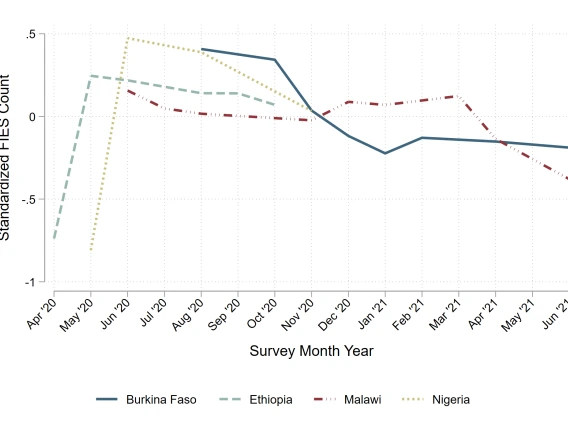
Food Insecurity During the First Year of the COVID-19 Pandemic in Four African Countries
Lorin Rudin-Rush, Jeffrey D. Michler, Anna Josephson, and Jeffrey R. Bloem

Recent Developments in Inference: Practicalities for Applied Economics
Jeffrey D. Michler and Anna Josephson

The Evolving Impact of COVID-19 in Four African Countries
Ann Furbush, Anna Josephson, Talip Kilic, and Jeffrey D. Michler

Socioeconomic Impacts of COVID-19 in Low-Income Countries
Anna Josephson, Talip Kilic, and Jeffrey D. Michler
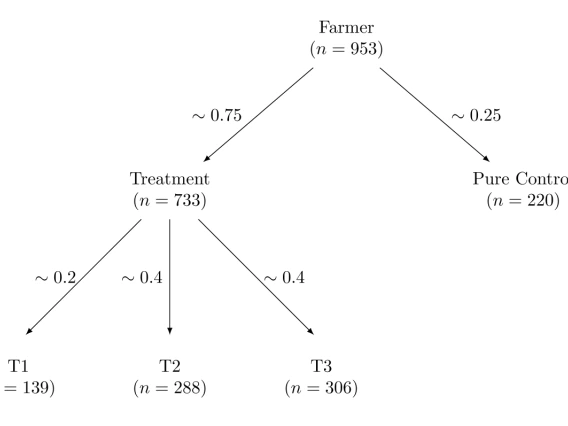
Contract Farming and Rural Transformation: Evidence from a Field Experiment in Benin
Aminou Arouna, Jeffrey D. Michler, and Jourdain C. Lokossou
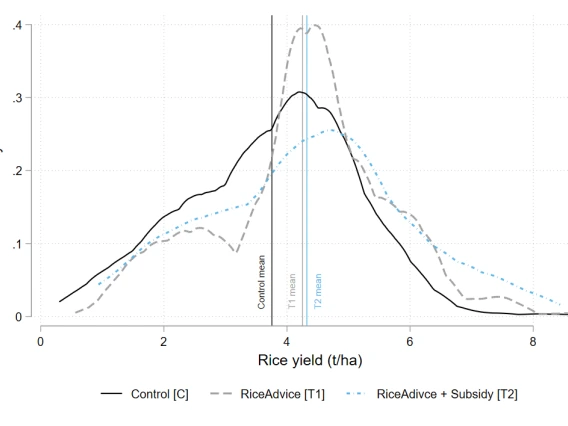
One Size Fits All? Experimental Evidence on the Digital Delivery of Personalized Extension Advice in Nigeria
Aminou Arouna, Jeffrey D. Michler, Wilfried G. Yergo, and Kazuki Saito

Research Ethics Beyond the IRB: Selection Bias and the Direction of Innovation in Applied Economics
Jeffrey D. Michler, William A. Masters, and Anna Josephson

What Do you Mean by “Informed Consent”? Ethics in Economic Development Research
Anna Josephson and Melinda Smale

Ulysses' Pact or Ulysses' Raft: Using Pre-Analysis Plans in Experimental and Nonexperimental Research
Sarah Janzen and Jeffrey D. Michler
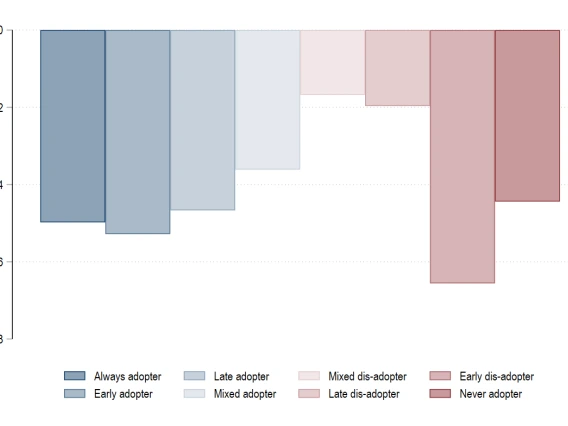
Money Matters: The Role of Yields and Profits in Agricultural Technology Adoption
Jeffrey D. Michler, Emilia Tjernstrőm, Simone Verkaart, and Kai Mausch
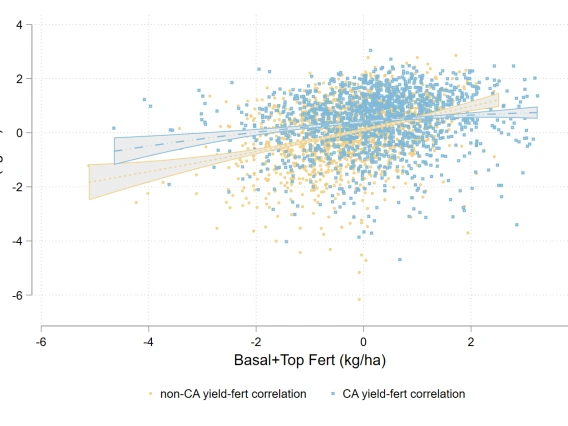
Conservation Agriculture and Climate Resilience
Jeffrey D. Michler, Kathy Baylis, Mary Arends-Kuenning, and Kizito Mazvimavi
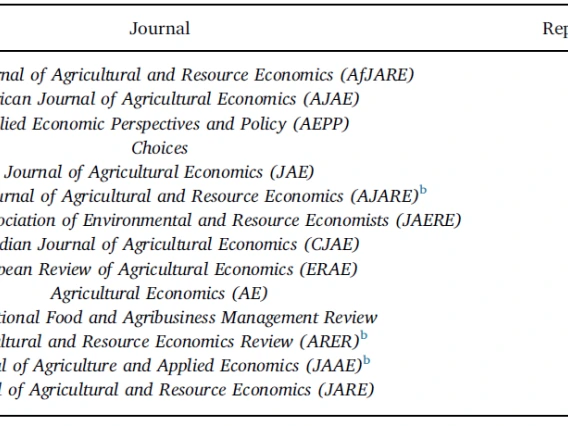
Beasts of the Field? Ethics in Agricultural and Applied Economics
Anna Josephson and Jeffrey D. Michler
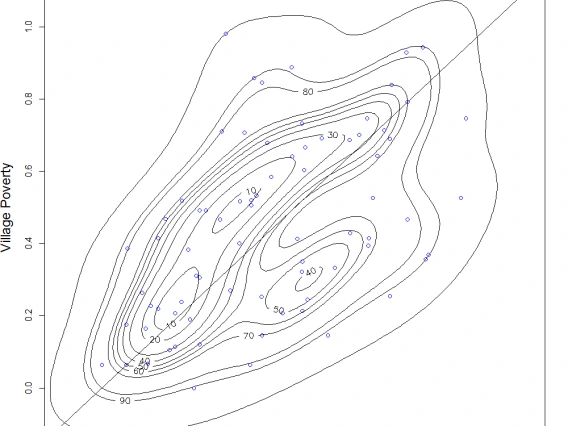
To Specialize or Diversify: Agricultural Diversity and Poverty Dynamics in Ethiopia
Jeffrey D. Michler and Anna Josephson


